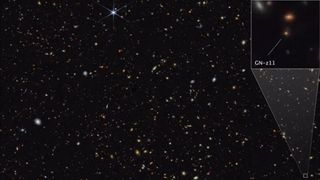big bang
Latest about big bang
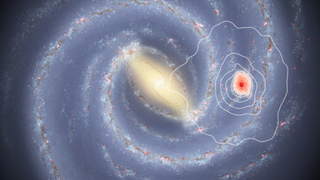
Group of ancient stars spotted near the sun could rewrite the Milky Way's history
By Patrick Pester published
Researchers using the Gaia space telescope studied some ancient stars near the sun, revealing that our corner of the Milky Way may be billions of years older than once thought.
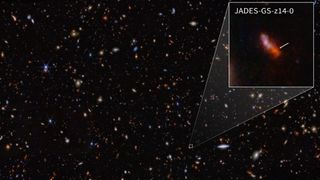
James Webb telescope confirms the earliest galaxy in the universe is bursting with way more stars than we thought possible
By Ben Turner published
The light from the most distant galaxy in the known universe suggests that there's something off about our current cosmological models, a new James Webb Space Telescope study finds. The explanations remain elusive.
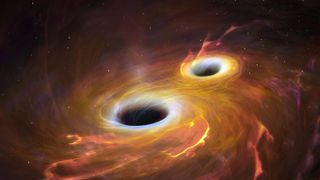
Astronomers discover the 1st-ever merging galaxy cores at cosmic dawn
By Ben Turner published
Two superluminous quasars, or active black holes at the centers of large galaxies, were found just 900 million years after the Big Bang — the earliest detection of a pair of merging quasars ever seen.
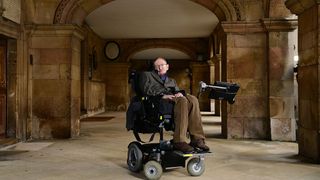
'Physics itself disappears': How theoretical physicist Thomas Hertog helped Stephen Hawking produce his final, most radical theory of everything
By Ben Turner published
Thomas Hertog tells us how he collaborated with Stephen Hawking on his final theorem — a Darwinian revolution in physics that explains the origin of time.
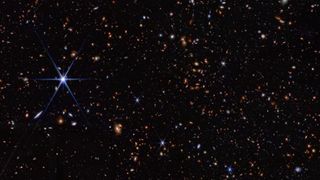
James Webb telescope finds carbon at the dawn of the universe, challenging our understanding of when life could have emerged
By Ben Turner published
The James Webb Space Telescope has found carbon in a galaxy just 350 million years after the Big Bang. That could mean life began much earlier too, a new study argues.
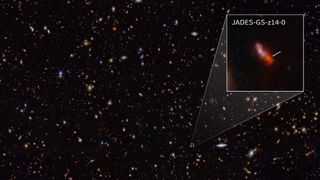
James Webb telescope discovers earliest galaxy in the known universe — and its shockingly big
By Brandon Specktor published
The James Webb Space Telescope has detected the two earliest, most distant galaxies in the known universe, dating to just 300 million years after the Big Bang. The detection of even earlier galaxies is likely to follow.
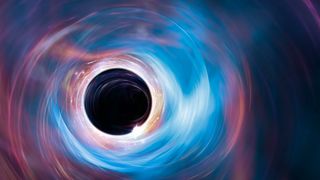
Scientists may have finally solved the problem of the universe’s 'missing' black holes
By Ben Turner published
Primordial black holes are one of the strongest candidates for the universe's missing dark matter. But a new theory suggests that not enough of the miniature black holes formed for this to be the case.
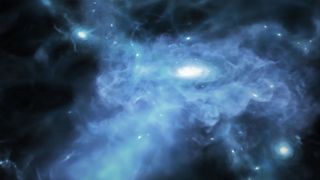
James Webb telescope sees 'birth' of 3 of the universe's earliest galaxies in world-1st observations
By Brandon Specktor published
The James Webb Space Telescope may have spotted the birth of some of the earliest galaxies in the universe for the first time ever, new research hints.
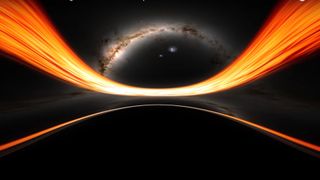
Newfound 'glitch' in Einstein's relativity could rewrite the rules of the universe, study suggests
By Ben Turner published
Einstein's theory of general relativity is our best description of the universe at large scales, but a new observation that reports a "glitch" in gravity around ancient structures could force it to be modified.
Sign up for the Live Science daily newsletter now
Get the world’s most fascinating discoveries delivered straight to your inbox.
